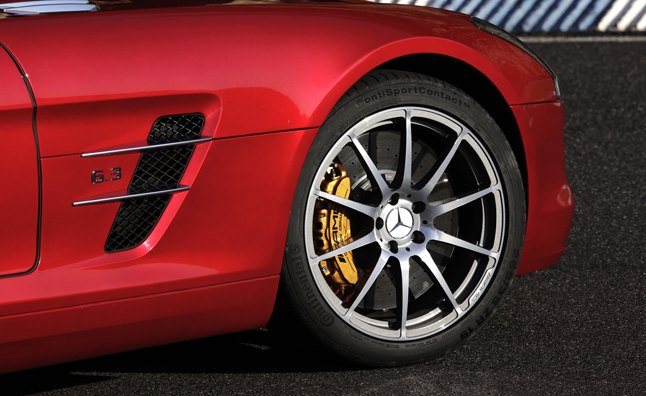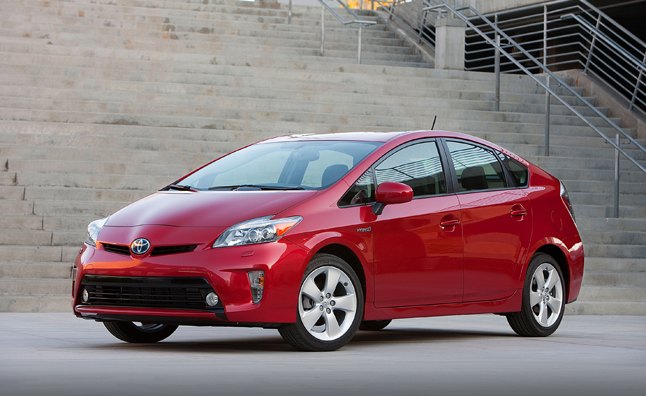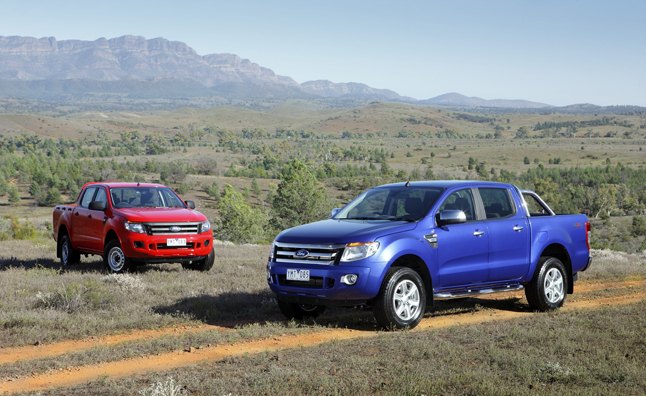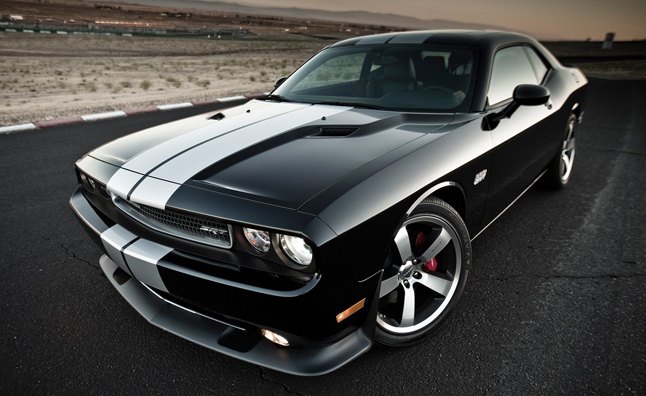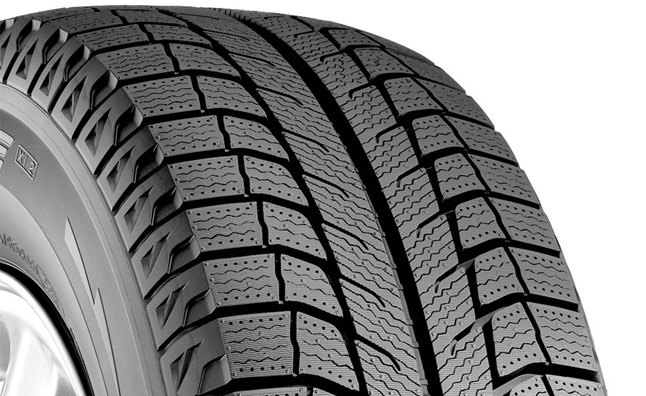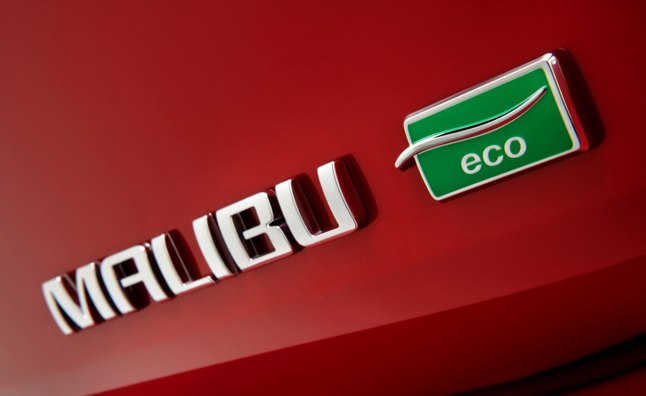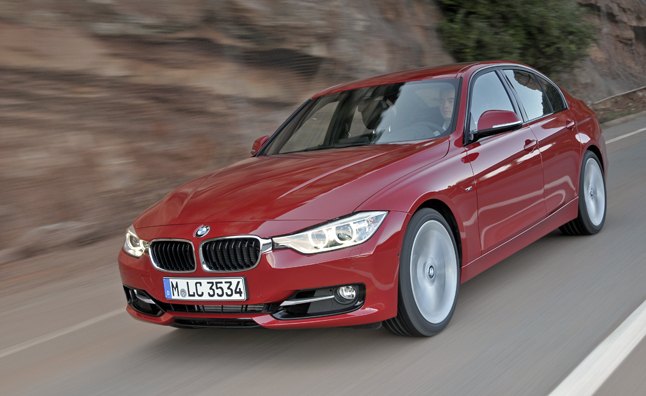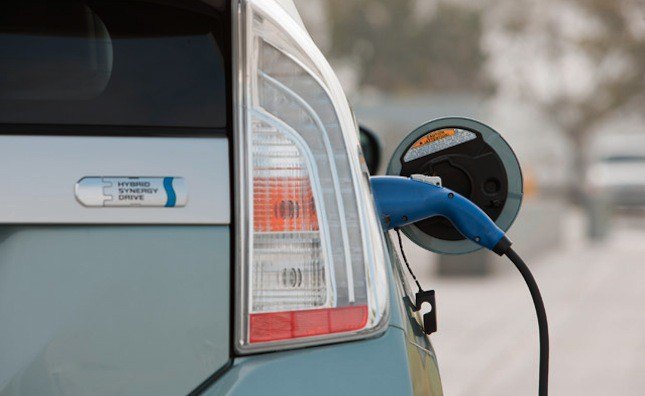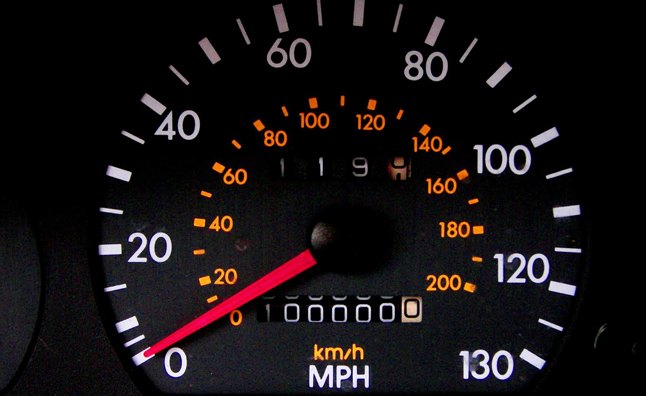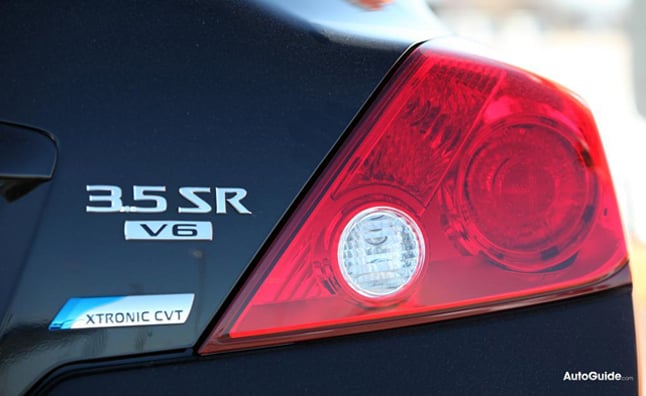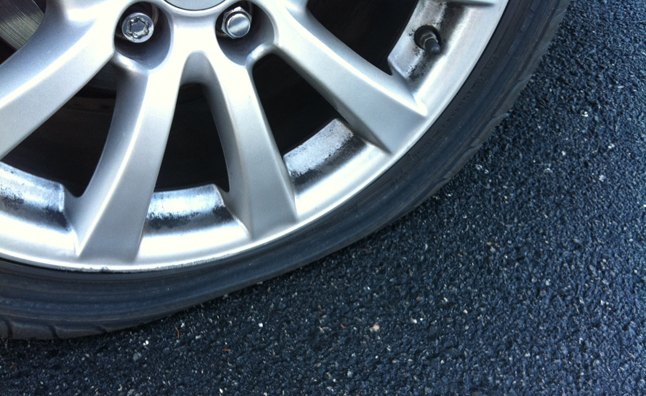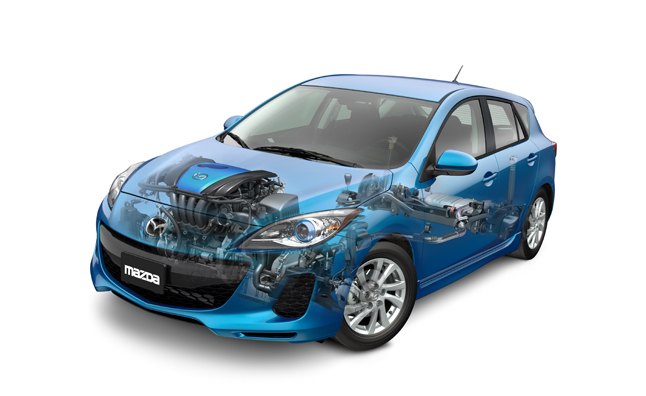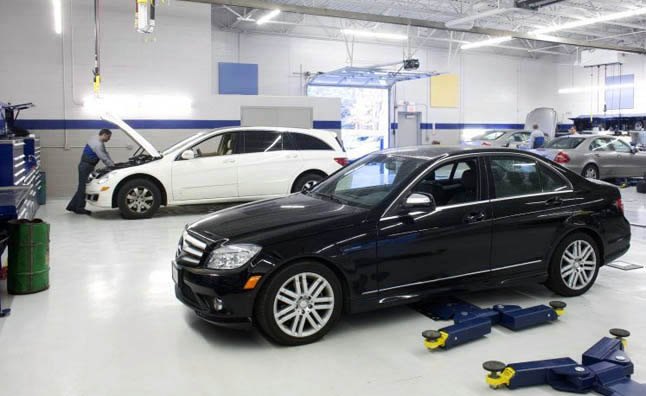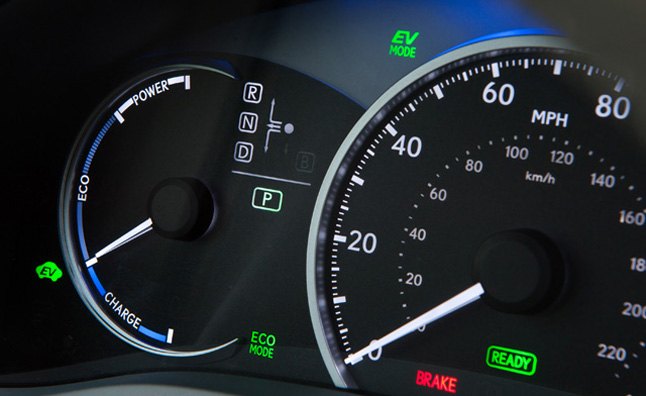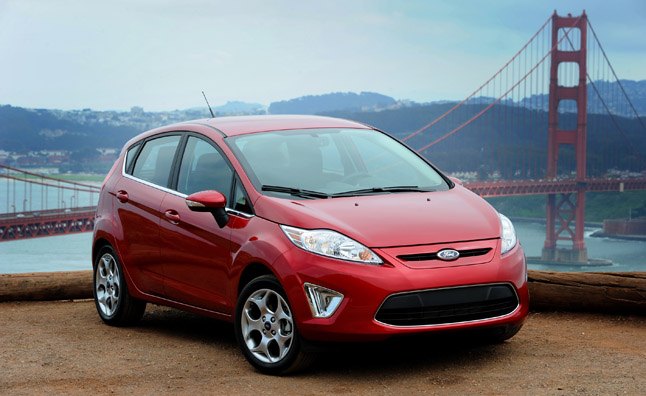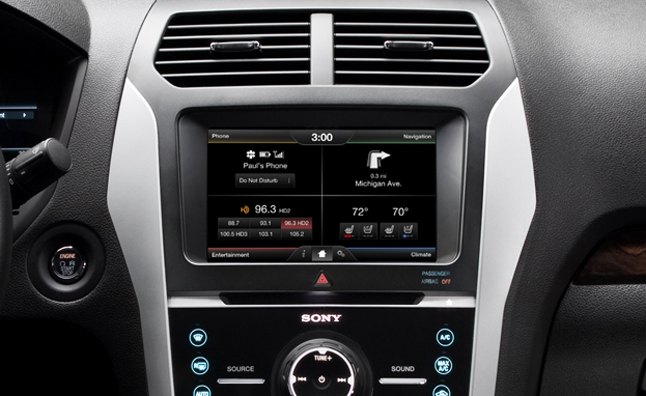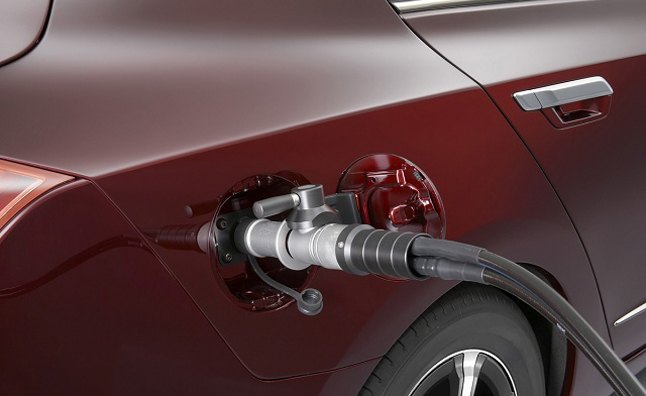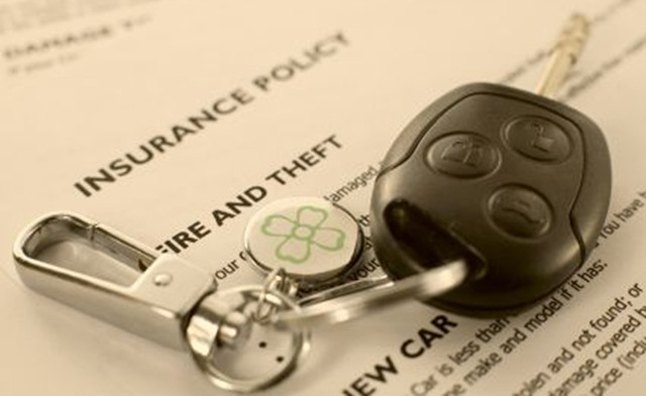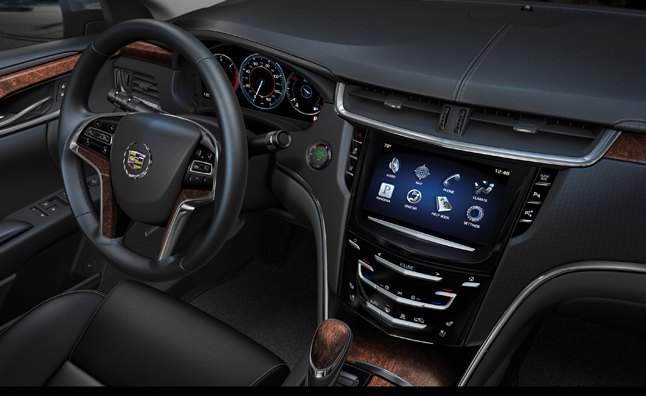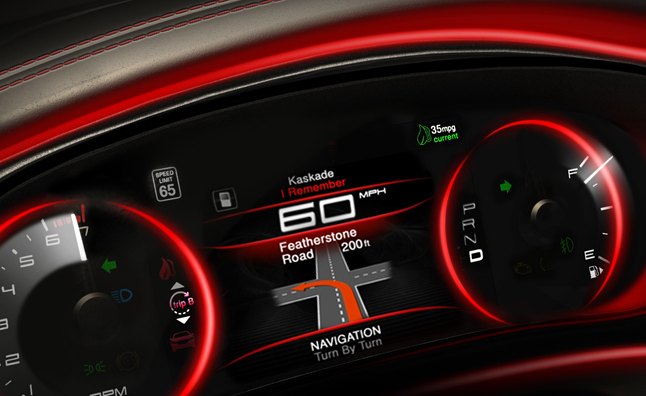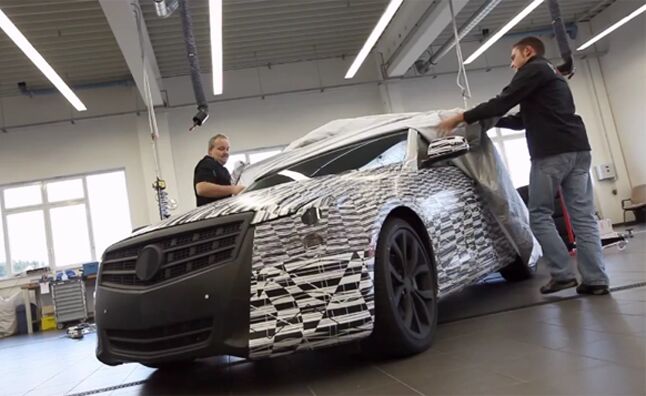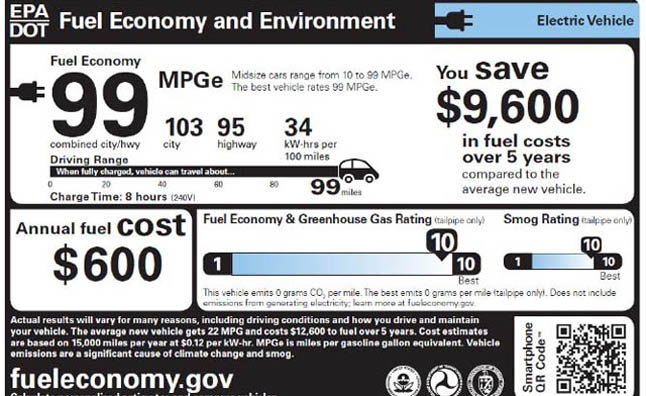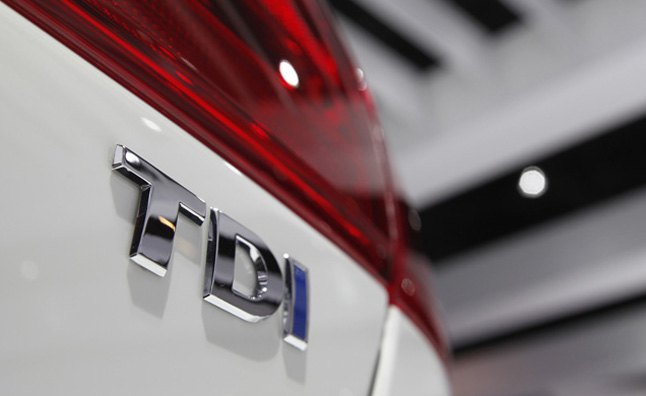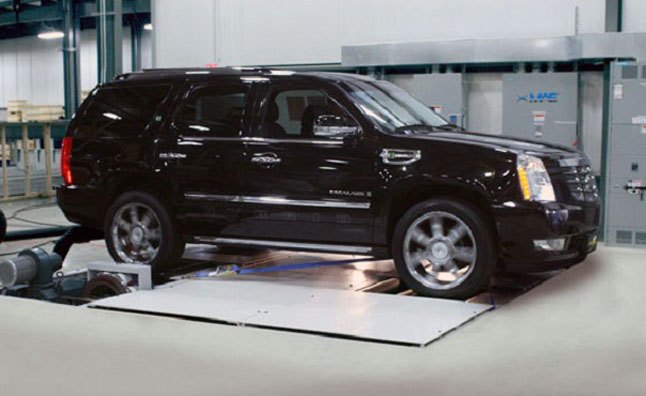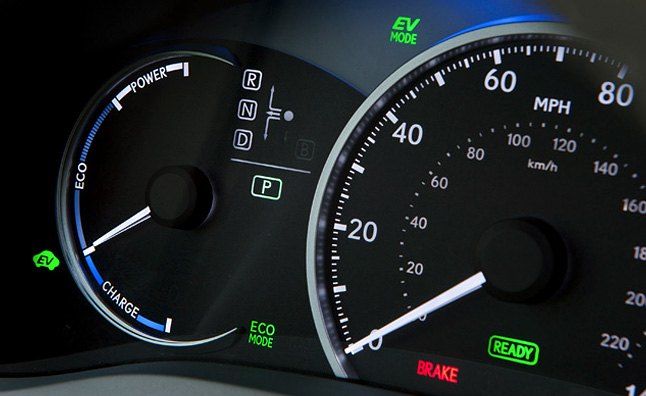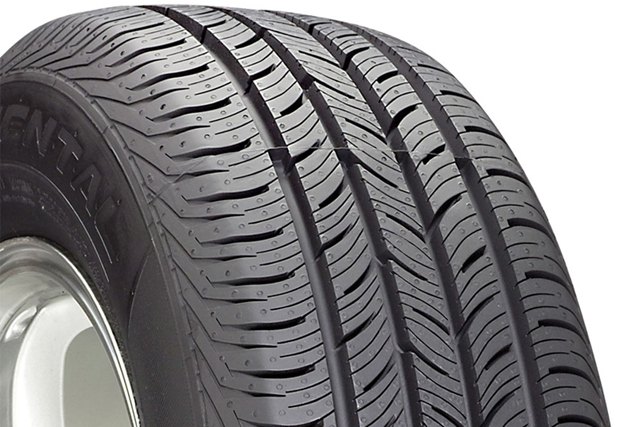- Acura
- Alfa Romeo
- Aston Martin
- Audi
- Bentley
- BMW
- Buick
- Cadillac
- Chevrolet
- Chrysler
- Dodge
- Ferrari
- Fiat
- Ford
- Genesis
- GMC
- Honda
- Hyundai
- Infiniti
- Jaguar
- Jeep
- Kia
- Lamborghini
- Land Rover
- Lexus
- Lincoln
- Lotus
- Lucid
- Maserati
- Maybach
- Mazda
- McLaren
- Mercedes-Benz
- MINI
- Mitsubishi
- Nissan
- Pagani
- Porsche
- Ram
- Rivian
- Rolls-Royce
- SMART
- Subaru
- Tesla
- Toyota
- Volkswagen
- Volvo
Should You Use Synthetic Oil in Your Vehicle?
Last week we explained the basics of motor oil, from viscosity to additives and everything in between. Now it’s time to tackle a much more contentious issue: synthetic versus conventional. Which lubricant should you use in your vehicle? Is the extra protection afforded by man-made oil worth the added expense?
What's the Best All-Wheel-Drive System for You?
More and more automakers are offering all-wheel-drive than in the past. This extra choice is great news for consumers but it can lead to confusion; the number of technologies on the market is practically vertigo-inducing. Each manufacturer’s system is unique, and a lot of times the underlying hardware is different. Not every all-wheel-drive setup was created equally. Which one is best for you? Here’s an overview of what some major manufacturers offer.
Drivers Not Prepared for Winter Weather: Survey
This winter season, are you worried about the driving habits of other drivers, or the weather affecting your car’s driving characteristics?
Should You Buy a Car With Direct Injection?
Despite advancements in hybrid power-trains and electrification technology, gasoline engines remain the predominant choice in passenger cars because of continued efficiency improvements, most recently through the increased use of direct injection technology. But are you gambling when buying a car with DI, which still has its fair share of concerns and problems?
Under the Hood: What is Octane?
Anyone that’s ever topped off their tank or filled up a jerry can knows gasoline comes in different grades, from regular unleaded to pricey premium. Each “flavor” has a number that corresponds to its octane level, but what does this mean? What is octane and what role does it play? AutoGuide reached out to experts in the fuels field for answers.
How to Drive on Snow and Ice: Winter Driving Safety Tips
Snow and ice on the road can make for a slippery drive home, and the snowflakes falling from the sky can limit your visibility, so it’s no wonder that there’s a definite increase in insurance claims once winter starts.
High-Octane Hijinks: Is Premium Fuel Better Than Regular?
When it’s time to top-off the tank, drivers are confronted with a dizzying variety of choices at the pump. There’s premium gasoline, mid-grade, regular and – depending on where you live – some even offer ultra-high octane, with a rating of 94 or above.
Don't Dread Winter With These Snow Survival Extras
Winter is almost here and there’s plenty to do in order to ensure you have a safe and enjoyable drive in the snow and ice. The drop in temperatures can affect a number of characteristics in your vehicle, from handling, visibility and durability. Here are a few steps you can take to ‘winterize’ your ride.
Performance Modifications: Where to Start?
With the world’s largest aftermarket parts expo, the SEMA Show, kicking off tomorrow, it’s going to be easy to catch the modification addiction. But don’t just slap a bunch of stickers and neons to your car and call it a day. Why not give your ride an extra boost of adrenaline? Consider these performance modifications and browse to eBay Motors to see what’s available for your car.
Why You Need Winter Tires
With the temperatures dropping and snow falling, winter tires can’t be ignored as an important part of staying safe in slippery conditions.
TGIF[R-S]: Track Day at Last – Video
Welcome to the latest installment of our weekly series: TGIF[R-S], where Features Editor Sami Haj-Assaad details the ownership experience of the Scion FR-S. If you haven’t seen the latest articles, be sure to check out the whole archive of them.
Why You Should, Or Shouldn't, Upgrade to Carbon Ceramic Brakes
When was the last time a car’s braking performance made headlines? Or when a vehicle’s defining feature was listed as its ability to come to a stop in a hurry?
Six (Lame) Excuses Not to Buy a Hybrid
With an almost never ending list of myths and rumors, few vehicles are as misunderstood as the hybrid.
Where Did The Compact Pickups Go?
Bigger isn’t always better, although domestic automakers are pretending not to hear you when it comes to compact pickups. Why?
Should You Buy a Car With All-Wheel Drive?
It’s every driver’s nightmare to lose grip in slippery conditions, but is that a good enough reason to buy a new car with all-wheel drive?
In Memoriam: The V8 Engine 1900-201?
With the oil crisis of the ‘70s many predicted the death of the V8 engine, but it has continued to solider on. With Chrysler and Infiniti execs recently commenting that there’s no place for eight-cylinder cars in the future of their respective brands, this time, are the V8 engine’s days finally numbered?
Best All Season, Winter Tires List Released by Consumer Reports
As the seasons begin to change and the temperatures drop, many motorists will be on the hunt for winter tires, or even just a set of new all-seasons. Well in advance of the snow, Consumer Reports has released a list of the best new all-season and winter tires to meet different traction needs with both Michelin and Continental scoring highly.
What to Do If You Are Involved in an Accident
Your car is at a standstill, your heart is racing, if you’ve just been in an accident, chances are you’re a little shook up. Take a deep breath. There are a few things to go over when you get into an accident, especially if another driver is involved.
What to Do If Your Car Has Been Stolen
Despite all of the measures currently in place to prevent vehicle theft, the FBI says that a vehicle is stolen in the United States every 43 seconds.
How to Get Your Car Stolen: Infographic
Car theft season is here, as we learned earlier this month. Looking for a quick laugh this morning? Take a look at this infographic describing the best ways to get your car stolen.
Feature: GM's EAssist Hybrid Bet Doesn't Pay Off
Currently available on three models, GM’s eAssist technology is a product and packaging gamble the automaker has made that does not appear to be paying off. While the first two Buick models to receive the mild-hybrid system received modest praise, the new Chevy Malibu Eco has drawn so much criticism it was recently named “the most disliked vehicle of 2012” according to Fortune magazine.
The impact of that title, not to mention all the bad press that’s led up to it, can’t be understated. The reputation, and sales, of an entire lifecycle of Malibu models (the Malibu being one of GM’s largest volume products) is hanging in the balance.
Driver's Ed: Learning Fundamentals Without Fluff in an Open Wheel Race Car
Modern traction control and braking systems have their roots in motorsports, but now make even the most mundane commuter car an easier and safer driving experience.
Will a New Era of Turbocharging Bring Back Old Problems?
In an effort to squeeze as much power from every car, while making them more fuel-friendly, automakers are increasingly switching their engines to use a technology that’s not exactly new and which isn’t typically associated with fuel economy – turbocharging.
11 Future Hybrids Heading to Dealers Soon
Even though they’ve been around for well over a decade now, hybrids still have that ‘new technology’ feel. Consumers continue to be apprehensive to hybrid technology and there’s plenty of misinformation surrounding it.
Tips For Buying a High Mileage Used Car
Buying a used car is a lot more complicated than buying a new one. You can quickly judge a car’s life by looking at its odometer, however, there are numerous other things to look out for when buying a second-hand vehicle; especially one with high mileage.
Should You Buy a Car With a CVT Transmission?
Five Safety Tips For New Drivers
This month has been deemed National Youth Traffic Safety Month, and in an effort to teach young drivers more about traffic safety, AutoMD.com is providing some handy tips about how to deal with breakdowns.
Run Flat Tires: Why You Should, or Shouldn't, Buy Them
Maybe you’ve been in this situation: stuck on the side of a road, a punctured tire needing to be changed out for the spare one in the trunk. You have a pair of options, do you choose to change the tire yourself, or do you call for roadside assistance. Both options can take a while to get you back on the road, especially if you’ve never changed a tire yourself before. And even if you have, sometimes it can take some serious elbow grease.
The All Season High Performance Tire: Myth or Reality?
The Goodyear Eagle F1 Asymmetric All Season is a mouthful. Mind you, when it comes to high performance tires, this one’s key rivals, the Bridgestone Potenza RE960/970 and Michelin Pilot Sport A/S Plus, don’t exactly roll off the tongue either.
Names aside, Goodyear’s latest addition to the Eagle F1 range is designed to maintain high performance while adding all-season attributes. And when it comes to finding a place to give such a tire a good workout, the Pacific Northwest is probably as good a place as any.
Seven Fuel-Saving Technologies That Are Changing the Auto Industry
Every car, whether it has a big V8 engine or an electric motor powering the wheels, is being equipped with fuel saving technologies.
Recall variable-valve timing. Introduced on the Acura NSX, and at one time a revolutionary technology, now practically all cars have some form of VVT. Now more technologies are being introduced as innovations for saving fuel. Let’s take a look at some of the more important and popular features being introduced on new models; many of which will soon be as prevalent as variable valve timing.
Are German Cars Reliable? The Myth of "German Engineering"
There are a lot of car stereotypes out there, like that Toyota builds dull appliances. While true on many fronts, the Japanese automaker does also make exciting sporty cars like the Scion FR-S, and Lexus LFA, both praised for their exhilarating rides, edgy styling and pulse-raising performance. But there’s another stereotype that needs to be dealt with.
Likely you’ve heard the phrase “German engineering” more than a few times in your life and there’s a popular misconception that it equals good reliability. German cars are well engineered, sometimes to be amazing performance machines and sometimes to be incredibly high-tech (and often both) but, Porsche aside, German cars don’t have the best track record for reliability.
New Global Mileage Test Prompted by Discrepancies in Official Figures
Think your car isn’t living up to the official MPG numbers? You’re not the only one, which is why a project is looking at creating a standard global mileage test.
Return of the Three-Cylinder Engine: the Answer to High Gas Prices
With sky-high gas prices on the horizon and increasingly strict emissions standards for car manufacturers to live up to, consumers are constantly looking for more options when it comes to fuel economy, and automakers are equally eager to deliver. For those reasons manufacturers are continuing to downsize engines. It was a tough sell for car buyers to accept four-cylinder engines instead of six-cylinders, but will they have an easier time accepting three-cylinder engines?
MyFord Touch Version 2.0: What's New With the Faster, Easier-to-Use System – Video
Being a technology leader in the auto industry requires a thick skin. BMW had its reputation smeared when it first introduced iDrive back in 2001 and Ford is now suffering similar technology growing pains since the release of its MyFord Touch system in the 2011 Ford Edge.
Hydrogen Cars and Who is Making Them
Electric cars may have arrived, but the search for the perfect alternative fuel is still in progress. There are still a few major issues that keep battery powered vehicles from replacing the internal combustion engine.
Commuting Can Carry Negative Health Effects: Infographic
Commuting into town can be one of the most miserable parts of your day. A group of students at College@Home has done some research to find out exactly what your commute is doing to you mentally and physically.
Insurance Tips to Keep Costs Down
Relief at the gas pump seems to be a pipe dream. Prices are rising and drivers are rethinking budgets to accommodate. One way to help save money is through your insurance.
Right on CUE: Cadillac's New Infotainment System Sets the Stage
Cadillac is prepping a new member to its stable. No, it’s not the Nurburgring-tested ATS we’ve heard oh-so much about. It’s also not the XTS flagship sedan that Cadillac has desperately needed these past few years. In fact, it’s not a car at all.
EPA Vs CAFE: The Two Sides of Fuel Economy Numbers
Fuel economy numbers are more important now than ever before, as gas prices continue to rise in North America.
Recently Dodge came under criticism for announcing its upcoming Dart compact will get 40 mpg combined.
An impressively high number, even a class-leading car like the Hyundai Elantra, which gets 40 mpg highway, only achieves an average of 33 mpg. While the exact fuel economy figures have yet to be released and a 40 mpg highway rating is still in sight, when the Dart (above) goes on sale later this year it most certainly will not get 40 mpg average; not in real world driving and not even on the window sticker.
Dodge wasn’t wrong. They’re not even entirely to blame. If fact, they were just using a different testing method to get their fuel economy numbers. Or to put it more accurately, they weren’t even doing the testing. So why would a different testing method be used? It’s a long and complex story, but the gist of it is that according to a government mandate, in order for Fiat to take control of Chrysler it needed achieve three goals, the final one being building a 40 mpg car on American soil. Being government related, that number is a CAFE number, not an EPA number. What’s the difference? Read on.
How to Buy a Used Car
Taking your time and researching can reap big rewards when it comes to purchasing pre-owned vehicles.
To some, the very notion of purchasing a used car can send them running for the hills, but as with anything else, provided you do your homework, the vehicle you choose can save you thousands of dollars over that new one in the showroom, without proving to be a money pit.
Spy Photo Camera Camo Explained: What's With the Swirlies?
Ever see the cars in our spy photos page and wonder why they look like that? New paint job trends emerge all the time, like gloss-less matte paint finishes, which are becoming more and more popular in recent years. Some companies like to dial it up to 11 with chrome finishes on their entire cars. But there is one look that is always intriguing: car camouflage. No, not the desert or arctic warfare kind, we’re talking about camera-camo.
If you’ve spent even a smidgen of time on our Auto News page then you’ve probably seen one of our spy photo stories. A recurring trend in these stories is the bizarre magic-eye look on the prototype vehicles that our spies track down.
The truth is that car companies deliberately make their cars look that way so that when and if these prototype cars get snapped by a photographer, certain incriminating details are not visible.
SEE ALSO: Check out the latest spy photos
Also, it’s worth noting that the look isn’t even a paintjob at all, but a vinyl application. The pattern on the application is perfect at tricking even the most advanced auto focus system on a camera. That’s because a camera’s auto focus system uses a subject’s colors to figure out its focus.
Dan Suszko from Graphik Concepts sells these vinyl wraps and confirms that it really works wonders to hide body work in photographs. “Car companies want to put an end to one person exposing their product to the world” Suszko said. “It really hides the way things look in low-res images,” he added.
What is MPGe: Electric Car Fuel Economy Ratings Explained
Ford recently announced the EPA fuel efficiency rating for its electric Focus model. Since it doesn’t burn any gasoline, the number isn’t in miles per gallon (MPG), but was given as miles per gallon gasoline equivalent, or MPGe. A new term to the automotive lexicon, it’s worth exploring exactly what MPGe means and how an MPGe rating is determined, especially as the number of electric cars and plug-in electric hybrids on the roads continues to increase.
Families Spending More on Transportation Than Food: Study
According to a recent government study, the average American family now spends more a year on transportation than food. While higher gas prices are a significant factor, the study also says a big part of the problem lies with traffic congestion (which wastes a whopping $1.9 billion per year).
Furthermore, a lack of adequate public transportation in many areas and a crumbling infrastructure of roads, bridges and tunnels is making the situation worse.
Given that many municipalities have seen their budgets cut in recent years and with the cost of new construction projects and public transportation initiatives, plus a current lack of enthusiasm among voters for supporting them (raising taxes to fund such projects is essentially the only choice), it is unlikely we’ll see any improvements to the situation soon.
Why Buy a Diesel Car? Get the Facts, Know Your Options
Price, looks and size… these are the few factors that used to decide what vehicle you’d park in your driveway. Looking for a cheap and small car? A Toyota Corolla or Honda Civic will do. Need something bigger, perhaps a mid-size Hyundai Sonata or an SUV. Things used to be pretty easy.
With increasingly high gas prices and an overall movement towards green, fuel efficient vehicles, fuel economy has become more important. In fact, for many price, looks and size are now completely trumped by fuel economy.
“Buyers just look at the MPG on the sticker,” says IHS Automotive Analyst Devin Lindsay commenting that car buyers are now completely mesmerized by the EPA sticker label.
Take a look at the Toyota Prius, for example. It’s not terribly big, is fairly expensive, and looks… well… weird. But that didn’t stop three million of them from being sold, all thanks to a hybrid gas-electric engine that provides excellent fuel economy.
The Prius isn’t the only option for someone looking for a fuel efficient car, however; especially those in search of a more engaging driving experience. If you want to cut down on trips to the pump, and still drive a fun, powerful, good looking car, your best bet might just be in a diesel powered vehicle. That does mean you’ll almost certainly have to drive German, although a flood of new diesel-powered vehicles are about to hit our shore.
Where Do MPG Ratings Come From?
Every new car has a bit of paper full of numbers stuck to it. No, not the price tag, the other piece of paper… the EPA label.
Displaying the car’s rated fuel economy, these numbers can make or break a car buyer’s decision. Ever wonder how those numbers are determined? Read on.
When a car is released, the manufacturer provides its own fuel economy numbers. These are tested in-house and can vary from manufacturer to manufacturer. Many drivers don’t get the same numbers that the manufacturer says they should. It’s the government’s job to set them straight. However, due to the high number of cars released, only about 15% of the vehicles are actually tested.
Fuel Efficient Driving Tips: How to Drive Green
Is your car using too much gas? Price for gasoline is getting up there, and if you’re not careful enough while driving, you could be spending a lot more than you have to on fuel.
There’s some good and bad news for those looking to get better mileage with each tank. First, the good: it is possible to squeeze out more miles per gallon, even without having to spend money on a new hybrid car, or extra maintenance. The bad news: it’s going to require a change in your driving habits.
Nick Chambers, Green Car Specialist tells us that “even small changes such as driving a bit slower, anticipating traffic lights, trying to come to a full stop as little as possible, accelerating in a steady/relatively slow manner, using cruise control and planning trips to have the least amount of travel and stops, can make big differences.” In fact, these changes can account for as much as a 15 to 20% improvement, he says.
Focused on saving money and the environment from behind the wheel, ecodriving.org lists five “Golden Rules” for gas tank friendly driving, and have some reasoning behind why they work. Let’s take a look at a few tips they provide.
Best Tires to Buy List Released by Consumer Reports
Tires can make a huge difference in your car’s handling and safety. Additionally, with the right rubber, you can enjoy a more comfortable driving experience and even save money.




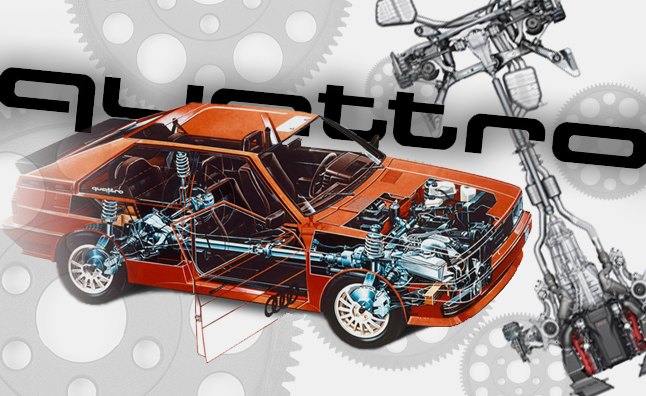

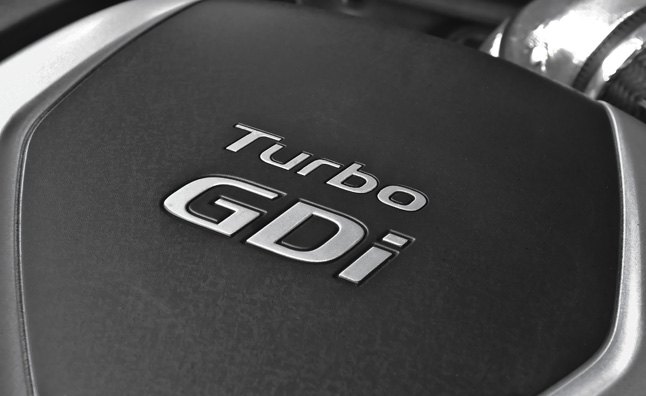
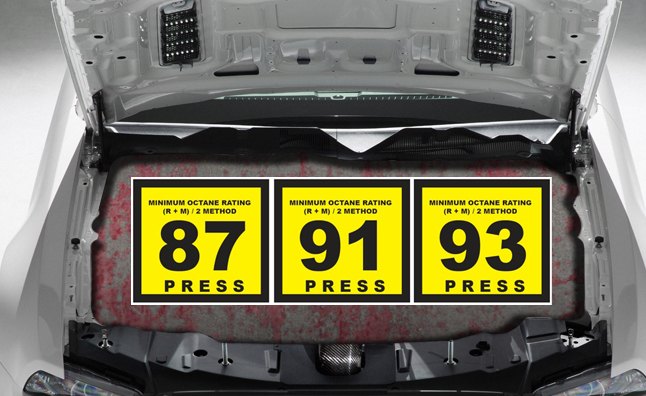
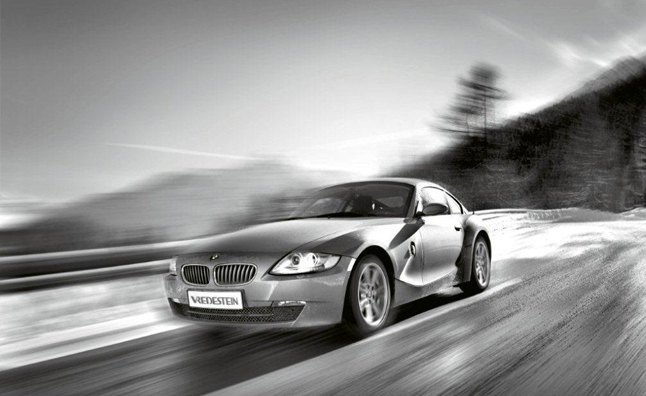
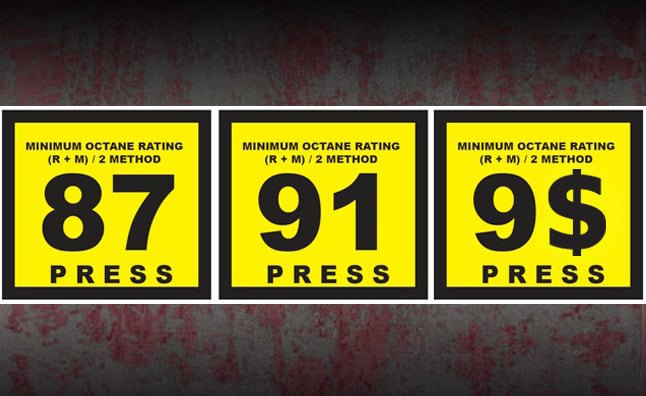

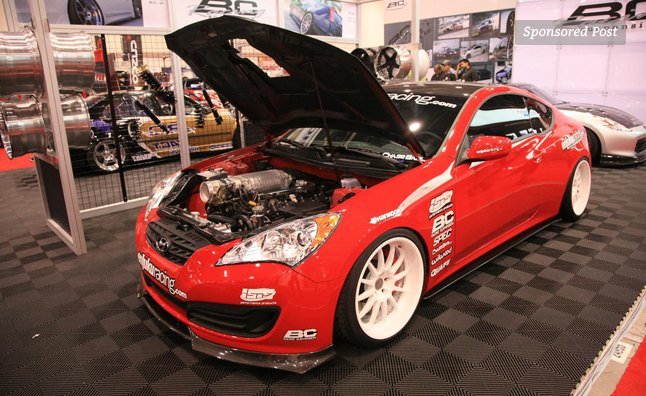
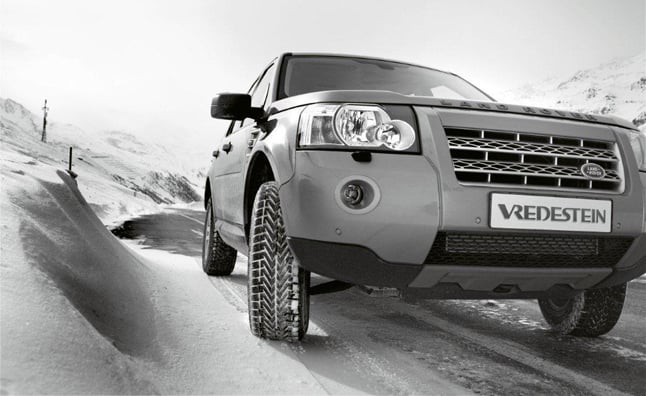
![TGIF[R-S]: Track Day at Last – Video](https://cdn-fastly.autoguide.com/media/2023/06/08/12465595/tgif-r-s-track-day-at-last-video.jpg?size=720x845&nocrop=1)
